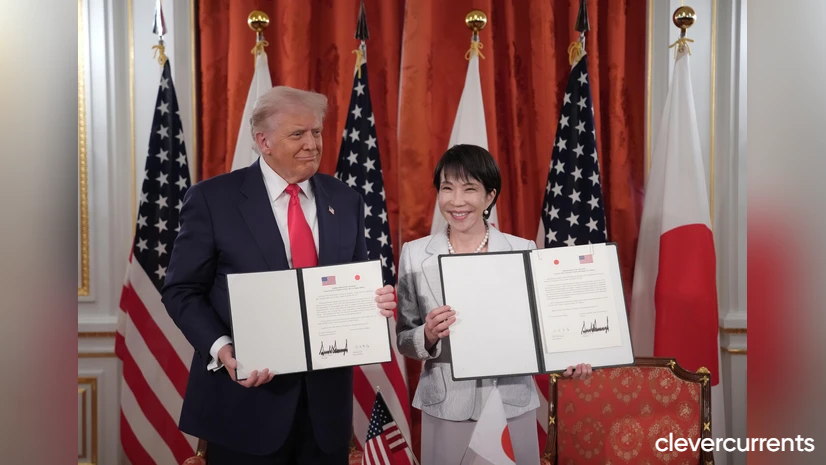Japan—through Prime Minister Takaichi—plans to nominate Donald Trump for the Nobel Peace Prize. She declared that “in such a short period of time the world started to enjoy more peace” and said she was “so impressed and inspired” by Trump.
Why now? What triggered this?
A number of factors appear to have converged:
-
Trump visited Tokyo and met with Takaichi. The two signed major agreements on trade and critical minerals, part of a push to deepen the U.S.–Japan alliance in response to a changing world order.
-
In that context, Takaichi declared a “golden age” of the U.S.–Japan alliance.
-
The nomination frames Trump’s efforts at mediation across several conflicts worldwide (Gaza, Southeast Asia, etc) as evidence of peace work.
What does it mean?
-
A nomination for the Nobel Peace Prize is not the prize itself: many people are proposed every year, and being nominated does not mean the committee endorses the work or will give the prize.
-
Diplomatically, it signals that Japan is aligning visibly with the U.S. under Trump’s leadership, and wants to cast its role in global security/economics in a new light.
-
Politically (within the U.S.), this feeds into Trump’s long‐expressed desire for recognition as “peacemaker.” It bolsters that narrative.
-
For Japan, the nomination can be seen as part of a broader strategy: moving into strategic frameworks (minerals, trade, defense) that challenge China’s regional role and emphasise Japan’s partnership with the U.S.
-
On the global stage, the fact that multiple countries (e.g., Pakistan, Cambodia, others) have nominated or are considering nominating Trump shows how the Peace Prize process is being used as a tool in diplomacy and signalling, not just purely “peace work” recognition.
Questions & caveats
-
The identity of nominees for the Nobel Peace Prize is kept secret for 50 years; hence claims of nomination must be treated carefully.
-
Beyond the nomination, the substantive question is whether the work meets the standard of “peace efforts” the Committee expects. Critics may ask: What is the concrete long‐term outcome? What is the peace maintained rather than fought?
-
For Japan’s sake: Does this move pay diplomatic dividends? Or could it complicate Japan’s relationships with neighbours (e.g., China, Korea) if the alliance is seen as too U.S.–centric?
-
For the prize itself: Given past laureates and controversies, the awarding body may resist giving it to someone as politically polarising as Trump. Some media reports already say the odds are “slim.”
Broader implications
-
This could spark a kind of “nomination cascade” where countries see nomination as a way to align with or reward a major power figure. E.g., Pakistan’s nomination of Trump over India tensions.
-
It reflects how the Nobel Peace Prize has become intertwined with geopolitics: states, not only civil society, actively use it as a diplomatic tool.
-
For Japan, the juxtaposition—joint trade/defence deal + nomination for peace prize—suggests a new shape of diplomacy that bundles economics, minerals, security, and soft prestige together.
-
For Trump’s legacy: If the nomination gains international traction, it strengthens his narrative of being a historical deal-maker rather than just a domestic politician.
What to watch going forward
-
Will Japan submit formal nomination papers? When? The deadline for nominations usually falls on Jan 31 for the next cycle.
-
How will the Norwegian Nobel Committee react and weigh the nomination among many others? What will be the comparative field?
-
Will other countries join Japan in nominating Trump, thus strengthening the international “coalition” behind his candidacy?
-
Will Japan extract or expect something in return for making such a bold diplomatic gesture (e.g., defence cooperation, trade concessions)?
-
How will the broader global community—especially critics of Trump—respond? Will this nomination catalyse pushback or further debate on the nature of peace and the prize?
A quick take
In sum: Japan’s decision (via Prime Minister Takaichi) to nominate Donald Trump for the Nobel Peace Prize is a striking combination of diplomacy, symbolism and image-making. It’s less about the Nobel prize per se and more about what the nomination signals domestically and internationally. Whether it changes anything substantively will depend on the follow‐through — both in terms of peace outcomes and the formal nomination process.

